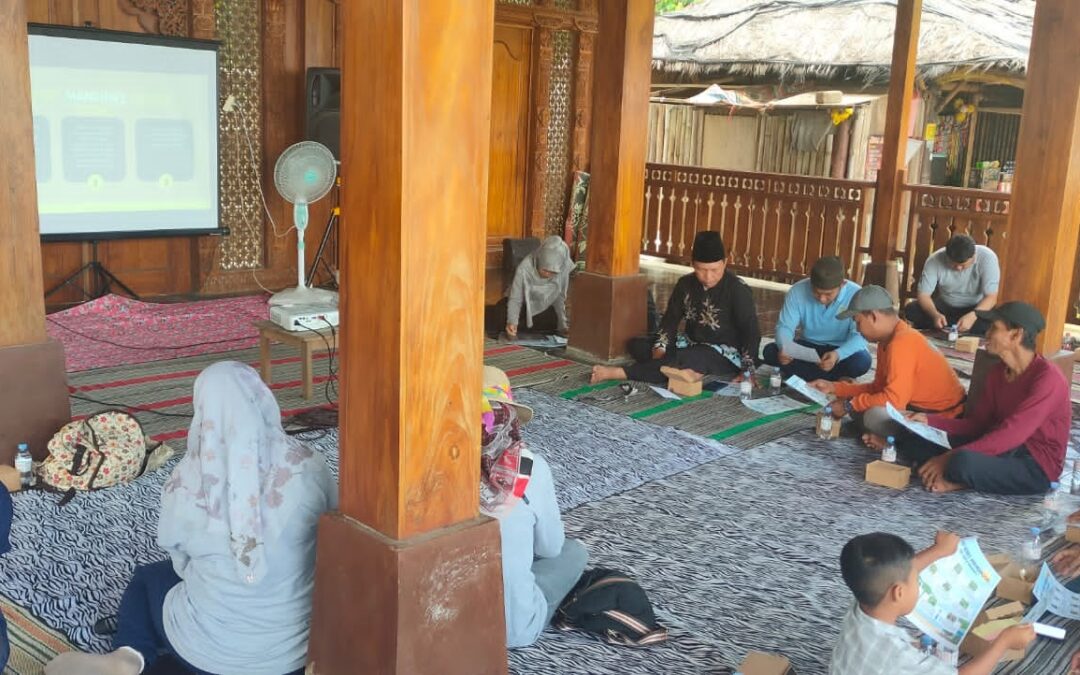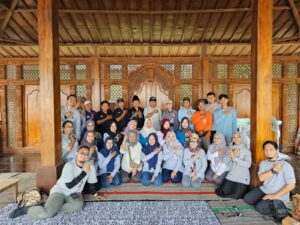Jepara – As a form of academic contribution to efforts to conserve the coastal environment, the Department of Aquatic Resources, Faculty of Fisheries and Marine Science, Universitas Diponegoro (Undip) held an educational activity to introduce mangrove species and benefits to the people of Teluk Awur Village, Jepara Regency on Saturday, May 17, 2025, at the Teluk Awur Tourism Beach pavilion. This activity is part of an effort to encourage community involvement in preserving coastal ecosystems that are vulnerable to damage.
Education was conducted through an interactive presentation session by Astrid Aditika Ningwuri, S.Pi., M.Pi., as the activity coordinator. Participants were invited to recognize various local mangrove species such as Rhizophora mucronata, Avicennia marina, and Sonneratia alba. In addition, the ecological benefits of mangroves were conveyed, ranging from their role as abrasion barriers, coastal biota habitat, to their ability to absorb carbon. Other benefits such as the potential of mangroves as alternative food ingredients, natural batik dyes, and traditional medicine were also added to attract the interest of the community.
Participants consisting of BUMDes, Tourism Awareness Groups (Pokdarwis), Women Seaweed Processing Groups, coastal residents, and village officials took part in this activity. The enthusiasm of the community shows the high interest in learning and playing an active role in conserving mangrove ecosystems. The officials of Teluk Awur Village appreciated the steps taken by Undip.
This activity is part of a community service program initiated by Undip’s Aquatic Resources Department, and will later be continued with further activities, such as training, community-based conservation assistance, and integration of mangrove education into the local school curriculum. With the synergy between academics, village government, and the community, it is hoped that Teluk Awur can become a model of a resilient and sustainable coastal village in facing the challenges of environmental change.



